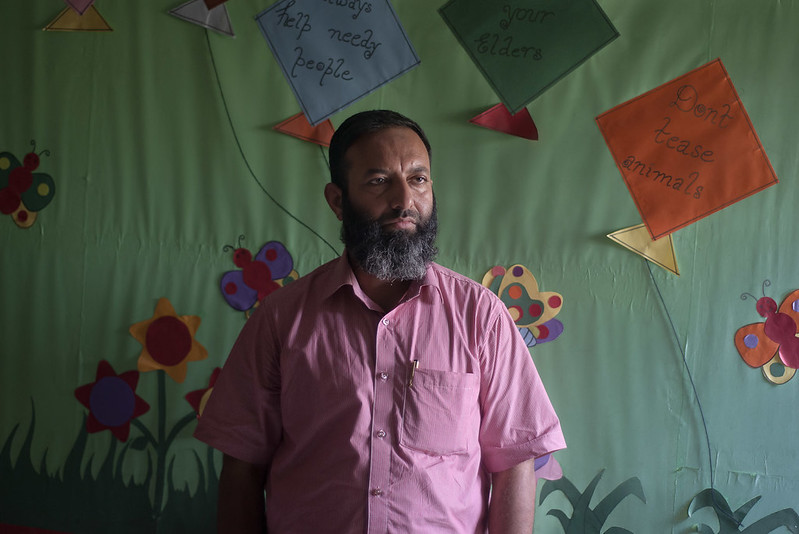By Asif Khan, TwoCircles.net
“Men are absolutely useless.”
For a moment, Shah Mohammad Shadab lost the patience in his voice. Working with underprivileged minorities for more than a decade, he has extensive experience about how families function in such societies.
“First they spend whatever they earn on booze and gambling. Then they snatch whatever little the women have made.”
The narrative isn’t very different. Across U.P., conversations with anyone engaged in working with disadvantaged minorities express different versions of the same reality. What’s different is the way he, along with similar minded friends, has been trying to make a difference to lives. Most of which has been through learning after making what he terms “mistakes”.
Providing financial help as charity is one of the easiest ways to reach out to a community in need. However, Shadab’s group soon realised that money didn’t matter. It went down the same gutter of addictions. Now, they provide food rations to beneficiaries identified after stringent checks. “At least this way, there is food for children at home”, he remarks with satisfaction.
Ramadan is a time of giving. Most individuals on whom Zakat is mandatory distribute it during this month to individuals in need, or to groups and organisations which can do it on their behalf. It’s natural that the increased funds for disposal strengthen their outreach programs, allowing them reach out to larger sections of communities in a better way. This comes with not just increased workload, but a greater responsibility.
In recent years, he feels that awareness of the importance of giving Zakat has increased among those privileged enough. However, he finds it somewhat troubling that they don’t really care as much about how their charity gets spent.
His concern is understandable. I have been guilty myself of simply passing on Zakat to whichever avenue first comes into view. Treating it like a matter of convenience, it ends up becoming a responsibility which has to be fulfilled, but whose execution remains suspect.
Having to ensure that the money reaches the right hands, this makes the task two-fold for someone like Shadab. To make it easier, he does constant evaluations through the year to ensure having a list of beneficiaries who are truly deserving in keeping with the guidelines laid out for dispensing Zakat.
Where possible, his group will provide clothes for Eid depending on a need based priority system. Similar to the past, the focus this year will be on arranging food packs for families during Ramadan. Talking about the contents of the pack–flour, rice, sugar, daal–he stops talking for a moment, and speaks with a forlorn sensitivity.
“Do you know there are families which don’t get to eat meat throughout the year, not even festivals?”
TCN series: Ramadan 1437

